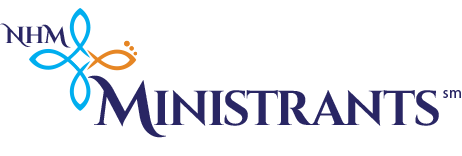Bib·li·cal Ex·e·ge·sis /eksi'jesis/ –
Noun: Structured method for analysis and interpretation of biblical text.
Ei·se·ge·sis (/ˌaɪsɪˈdʒiːsɪs/) –
Noun: To draw in purely subjective interpretations unsupported by the text.
<<Note: avoid doing this>>
Her·me·neu·tic /ˌhərməˈn(y)o͞odik/ –
Adj: Objective, explanatory, esp. regarding texts. The study of methodical principles of interpretation.
By biblical exegesis, we mean a formalized method for accessing the Holy Bible in which we seek out the intended meaning. As the original Greek word – meaning "to lead out" – implies, we are seeking to be led by God's word. In contrast, eisegesis seeks to twist God's word into an interpretation of our own design, even though unsupported by overarching text. Eisegesis is both incorrect and dangerous, and should be avoided and discouraged.
Hermeneutic, another strange old word, simply means the way one scholar may look at a text, versus another scholar. Consider a favorite song, and how many different singers can bring their own variations to it, while still staying true to the songwriter. Or consider all the many ways different actors can inhabit the same role. That's a taste of what we mean, by hermeneutics. In seminary, your class on the methodical principles of Biblical interpretation will likely be called Hermeneutics 101, or "The Art & Science of Biblical Interpretation." In it, you'll learn rules, such as keeping the text in context (i.e., avoiding eisegesis), and so on.
At NHM Ministrants, our flavor of biblical exegesis can also be called Healer's Path Exegesis or Nonharming Exegesis. We feel that God's word still speaks to us today, and we examine scripture from a perspective of active harm prevention in the here and now.
Our Approach
Taking a reverent, "high view" of scripture, we look to God's Word to illuminate and inform our hearts and minds regarding God's intent. The nonharming hermeneutic methodically and self-consciously examines a passage in the expectation that scripture will reveal a preferential care for the voiceless, the environment, and others who might need a champion. Additional sources of information, such as authorship, audience, compositional structure, and genre all enhance our understanding, but none are the primary focus.
"One main criticism that has historically been lobbied at Judeo-Christian ethicists – that the Old and New Testaments can be seen to contain irrational, conflicting or harmful teachings – can be countered with a careful approach to exegesis that examines every teaching from a perspective of active harm prevention in the here and now. We bring with us the expectation that such analysis will reveal a preferential care for the last, least, easily judged and marginalized and excluded." – Lauren Speeth, Director, NHM Ministrants
Although this sort of analysis is generally useful with people, it can also be used to make a case for creation care, or even the support of neighborhoods. See also our Spiritual Holistic Inquiry Process (SHIP) methodology which can further shed a light on the issue at hand.
Taking a nod from Jewish scholars, you might want to begin with the exegetical technique known as PaRDeS, which stands for Peshat - plain, or surface meaning / Remez — hints / Derash — seek / Sod — secret, or deeper meaning. One looks at the plain or surface meaning (Peshat) as well as the hints (Remez), and then seeks deeply, taking a guess (Derash), working towards a more subtle, deeper understanding. When looking for hints, consider other methods of exegesis, such as: the historical-critical method (including source, form, textual and socio-historical criticism); literary analysis (examining the narrative, the message, and the patterns and symbols), and so on.
Example Outline – On Behalf of Marginalized Group
1. DEFINE THE GROUP
- What group are you considering? How would you define this group? How would they define themselves?
- Has suffering come to this group? How so? Would you define them as downtrodden, or outcast? See also our Spiritual Holistic Inquiry Process (SHIP) methodology for details on analyzing individuals and groups (and even cities) holistically.
- How has your own community been complicit in allowing or perpetuating this suffering?
2. MITIGATING HARM
- What passages, if any, have been used to justify harm / exclusion / marginalization / ostracizing behavior, such as barring participation as full members of society, or in church (e.g., partaking in holy sacraments)? If fewer than five, examine all of them. If there are a great many passages, choose representative cases.
- Look at the plain meaning (Peshat). What do these passages say, on their surface?
- Look beneath, for hints (Remez). This can include:
- What is the tradition of interpretation for these passages? Has it changed, over time? Are there political or financial motivations behind any of these interpretations [e.g., the pro-slavery argument] ?
- Have these passages ever been used, historically, against other groups? If so, how so? What changed, if these arguments were set aside [e.g., the anti-mixed-marriage argument]?
- What is the historical and cultural context in which the passage(s) were written and is there anything about this context that could (or should) be taken into consideration when interpreting this passage [e.g., cleanliness/pork]?
- What, if anything, in our current cultural/ context and understanding that affects our reading of these passages [e.g., the disproportionate harm to women and children arising from divorce, at the time Jesus, and in the present day]? For example, something Jesus said should take greater relevance to the daily life of a Christian than almost anything else in scripture. Look at the location of these passages for whether the intercession of God's grace through the life and death and resurrection of Jesus has changed the picture. For example, has the cross, in reconciling humanity to God, reconciled women, or do we still blame them as daughters of Eve? Are clobber passages set among a great many other rules about which Christians no longer worry, such as the eating of shellfish?
- If skilled in Hebrew or Greek (as applicable), perhaps look at specific words in case they can shed more light.
- In light of all the above, and seek to interpret the text (Derash) for yourself.
- Is it actually possible to read these passages using different interpretations? How many interpretations can you imagine? Which ones are relevant to your target group? Which ones are most compelling to you? Is there one that speaks to your heart, as beautiful?
3. ADDING SUPPORT
- Locate passages that are, in their plain meaning (Peshat), in support?
- What did Jesus do or say, regarding this particular group? Or, was Jesus silent on this issue?
- Look beneath the surface meaning, for hints (Remez). This can include all of the methods outlined above, such as analyzing the original Hebrew or Greek, and so on.
- Locate passages that hint at such support [For example, Jesus' parable of the Good Samaritan in support of outsiders]
- Compare the number of passages in support against the number of passages historically used against. That is, count up the harming passages against the number of supportive passages (those passages calling for active harm prevention, or non-judging, nonharming, and standing up for the ostracized). Can the relative numbers reveal any hints (Remez)? That is, is there a conclusion to be drawn, from this ratio alone?
- In light of all the above, and interpret the Bible's call regarding this group, for yourself. Guided by the Holy Spirit, this effort will be fruitful, and will help you get at the "secret." Sod .
4. DRAWING A CONCLUSION
- Sum it up: what conclusions can you draw, from your logical, studied analysis of the above?
- What do you suggest be done, given your conclusions?
We hope that this outline has been helpful to you. We'd be interested to hear back from seminary students who have tried their hand at using it. If you have suggestions about how we can add to our four step method, we'd love to hear from you (in a nonharming way, naturally).
Peace and blessings!
What are WebDefs?
WebDefs – simple definitions of key terms relating to ministry and healing arts – are a regular feature of NHM Ministrants. Offered (where applicable) in conjunction with select key scriptural passages and analysis, WebDefs can be a useful starting place for exploring a topic of interest.

